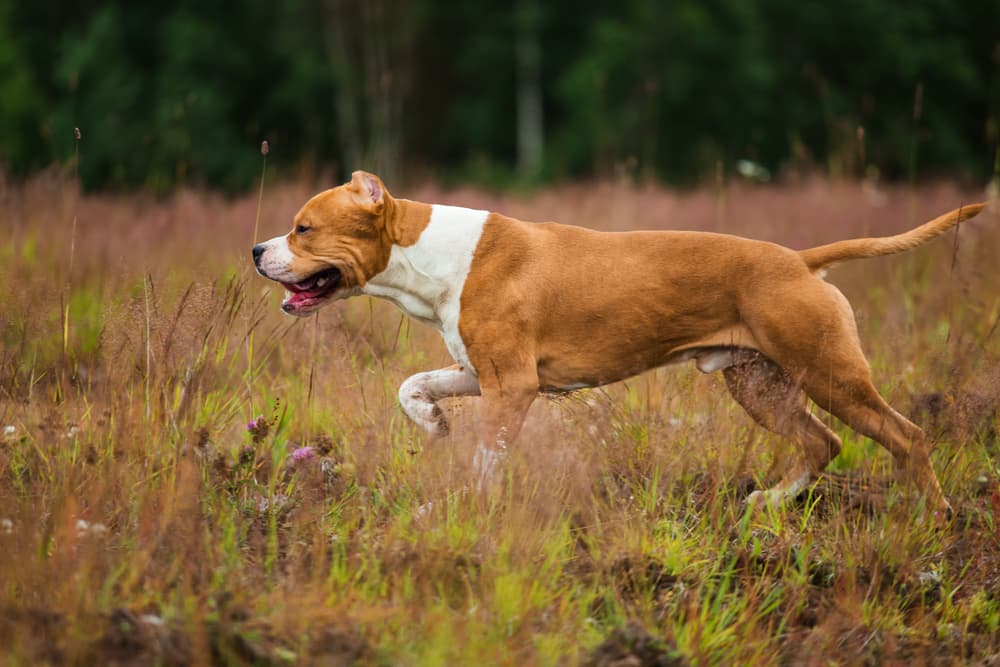The American Staffordshire Terrier (Amstaff) boasts a robust, solid, and muscular physique that exudes strength and confidence. Its skull is notably broad, featuring small ears set high on its head. With a black nose, dark and wide-set eyes, a strong jaw, and short, bristle-like fur that can come in various colors, the Amstaff’s appearance is striking. In terms of grooming, their fur is relatively low-maintenance, typically requiring just a weekly brushing to keep it in good condition.
Amstaff owners may appreciate the breed’s intimidating appearance, which can help cultivate the image of a formidable guard dog. However, in reality, they are incredibly friendly and affectionate towards humans. When it comes to interactions with other dogs, though, they may not be as naturally sociable, requiring your vigilant supervision whenever such encounters occur.
If you’re not an enthusiast of physical activity, the Amstaff may not be the ideal breed for you. This athletic and energetic dog requires a diverse range of physical and mental stimulation. Simply tying them up in the yard will not suffice—far from it. You’ll need to invest much more time in activities like walking, running, interactive play, and even participating in dog sports and competitions. Providing them with a spacious, secure outdoor area with a high and robust fence is essential. When outside the house, be prepared to walk them on a leash, which can be quite a challenge, especially with a strong and determined dog like the Amstaff.
Mental stimulation is equally crucial to prevent boredom, which can lead to destructive behaviors like chewing on belongings, including those brand-new shoes you bought just last week or that rare vintage couch you inherited. Keeping their minds engaged helps keep them happy and well-behaved.


















